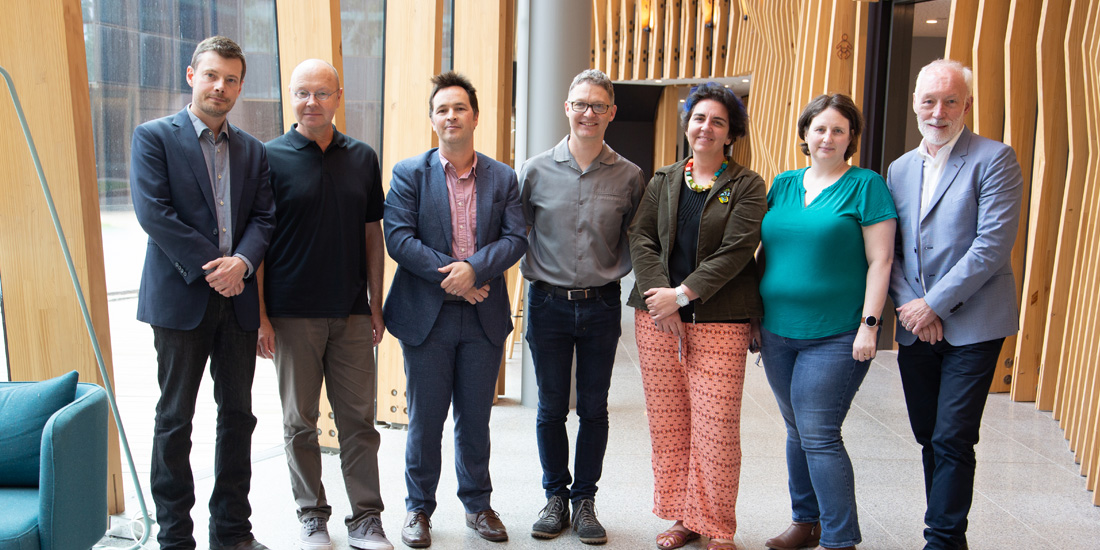 Wellcome Trust grant recipients. Photograph taken before the COVID-19 outbreak in Australia.
Wellcome Trust grant recipients. Photograph taken before the COVID-19 outbreak in Australia.
The world’s first clinical registry for early psychosis is being established by Orygen with the support of a $2.7 million grant from UK-based research charity the Wellcome Trust.
The funding will also be used to create and set up a clinical trial and translation network.
Orygen’s Associate Professor Andrew Thompson will oversee the rollout of the projects via the Australian Early Psychosis Collaborative Consortium (AEPCC).
“The overall project – AEPCC, the clinical registry, and trial and translation network – will enable us to better understand the outcomes of young people with psychosis in Australia,” Associate Professor Thompson said.
The consortium plans to have seven foundation member sites: all six headspace Early Psychosis programs – which are located in Western Australia, South Australia, the Northern Territory, Queensland New South Wales and Victoria – and Orygen’s own early psychosis clinical service in Parkville, Victoria.
Associate Professor Thompson said he hoped to have 20 member sites within the consortium by the end of the three-year funding period.
The purpose of the clinical trials network is to prepare more sites to take part in early psychosis research.
“The network will expand the pool of individuals who might be eligible for trials in early psychosis and allow large innovative research projects that – up to this point – have been very difficult to do in Australia,” Associate Professor Thompson said.
“The network is needed as many trials are done in single centres and consequently take a long time to recruit, or cannot answer specific questions because the number of people participating in the trials is too small.”
Associate Professor Thompson said the network would also have clear mechanisms to feed research findings back into the way sites deliver care to patients.
The clinical registry is eventually expected to house data on approximately 1000 cases of early psychosis per year.
“It will collect key data on the composition of the early psychosis sample and key outcomes,” Associate Professor Thompson said.
“This will allow us to monitor the performance of consortium member sites and investigate factors that may be important in achieving good outcomes, for example work, study and social outcomes and symptom outcomes.”